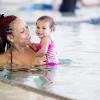
A new case involving teen sexual assault made national headlines in the past week because of its brutality and the role that social media played. Though as parents, it's tempting to turn away from these types of headlines, it's also our responsibility to listen, learn and teach our kids how to prevent (and protect themselves) from what is becoming a tragic aspect of social media.
The most recent case of teen sexual assault captured on social media headed to court this week in Chicago. Prosecutors say four teen boys lured a 15-year-old female acquaintance into a basement, slapped her and threatened to have a dog attack her if she didn't let them rape her. The brutal rape was captured on Facebook Live and, even though 40 people watched it streaming, no one reported it to the authorities. Two boys, ages 14 and 15, have been charged so far in the case.
The Chicago Tribune reports that the sexual assault was at least the fourth crime captured on Facebook Live since the end of October in that city. Chicago, of course, is not the only city grappling with the increasing use of social media in crimes. New Statesman reported last year that social media played a role in high-profile cases such as the Brock Turner Stanford assault case, which was captured on the social media app GroupMe, a pair of teens who documented a murder on Snapchat in 2014 and a rape live-streamed on Periscope in 2013. During the 2013 Steubenville rape case, many images of the rape were posted to social media and YouTube.
For a generation that's grown up with social media in their pockets (and with unprecedented access to online porn), it is perhaps not shocking that teens committing sexual assault are drawn to share evidence on social media, but the implications are striking for the perpetrators, their victims and their viewers.
As more of these crimes unfold, parents need to play an active role in not only teaching kids about consent (it’s never too early to start, see below), but also what to do if they witness a crime online. These aren't easy topics to address, but it’s part and parcel of teaching kids to do what’s right in a rapidly changing social landscape.
Talk to kids about consent early
Even young kids can learn about consent through lessons in bodily autonomy and boundaries; here is a useful resource for starting those conversations. As kids become tweens, it's critical that parents teach them the importance of affirmative consent; if it's not an enthusiastic, eager yes, then it's rape. As cases like these emerge in the media, talk to your tweens and teens and encourage them to ask questions, too. It may be uncomfortable, but it's integral for parents to combat the harmful messages kids absorb from the media and their peers.
Hearing about stories like these can be frightening. Help teens regain a sense of empowerment by signing them up for self-defense classes or workshops on sexual assault or consent (see resources below).
Teach kids about their responsibilities as social media users; and that they can always come to you
In the Chicago case, police were hampered in pursuing criminal charges against bystanders by Facebook Live's inability to identify who viewed the video, but technology varies across platforms and evolves quickly. In the Steubenville case, multiple teens were charged and convicted of possessing and disseminating child porn. Teens who come across violence on social media (or elsewhere, of course) have a moral — and legal — obligation to report it to authorities, including parents and, ultimately, 911. (Note: Most platforms have the ability to report or flag inappropriate content but the review processes can be slow and cumbersome.)
When events like these happen, it's a good time to remind your teens that they can come to you with tough questions. "Let your kids know that if they ever need to call in a ‘no-questions-asked’ sort of support system, that it’s available to them," said Seattle sex educator Callie Little. "It’s scary being a teen. Knowing someone’s got your back no matter what can be a big relief."
Let your kids know that if they ever need to call in a ‘no-questions-asked’ sort of support system, that it’s available to them
Model "upstander" behavior
No matter what we say, kids learn the most from what we do. Point out problematic behavior, take a stand when you encounter it in your own life, talk about how difficult and important it is to do the right thing and share examples of bystanders' heroic actions, such as the students who tackled and captured Brock Turner.
When you model a spirit of activism, your kids will take their cues from you. In the Chicago case, one boy was arrested after his mother took him to the police station. No parents wants to end up in her shoes, but there's no denying the lesson she taught her son by taking a difficult stand.
More articles and resourcesWhy I'm Taking My Daughter to a Workshop on Sexual Assault How to Talk to Kids About Online Porn |











